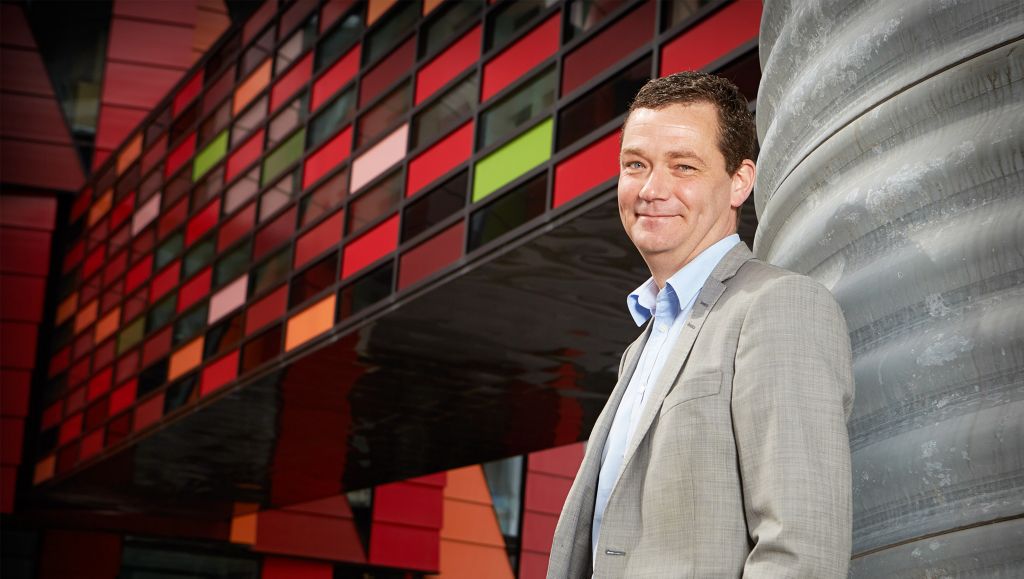Peter has a passion for leadership


Earlier this year, he was presented with an award for his skills in developing leaders, a Swedish award where, after in-depth interviews and a jury review, Peter Grönberg emerged as the winner, ahead of leaders in the public sector, the cultural establishment and trade and industry.
“It was such fun! It also feels great to have obtained recognition for the Volvo Group. We have so many skilled managers here.”
Peter Grönberg started working as a tennis coach when he was a teenager and this was when his interest in leading and developing was first aroused. After studying Industrial Economics at Chalmers University of Technology in Gothenburg, he was given his first managerial position at the age of 26. He is now 42 and he has been a manager for almost the whole of his working life. He has, for example, worked at Volvo Trucks, Volvo Cars, Volvo Powertrain, Product Development and Volvo IT.
“I have always had a burning interest in developing teams. One of the things I learned from my time as a sports coach is to focus on people’s strengths rather than the reverse. It creates self-confidence and energy. If someone had a good forehand, I worked on that rather than a poor backhand.”
His childhood and adolescence perhaps influenced his ability to see potential from an entirely different angle. Peter’s parents worked for SIDA (Swedish International Development Co-operation Agency) and so, together with two smaller siblings, he spent periods of his childhood in Africa, in Kenya, Tanzania and Ethiopia.
“I am extremely curious and I was made aware of different perspectives at an early age. This gave me a broader view of life. It opened up the world and so I have always liked global companies. As I was constantly exposed to change, I learned to feel secure in new situations. I find it easy to adapt, but, in my capacity as a manager, I need to be receptive, as many people may perceive me as being precisely the opposite.”
Change can take time and it requires careful consideration, but, at the end of the day, it often helps groups and individuals to develop. In a large organisation, change calls first and foremost for clear-cut leadership. Peter Grönberg is eager to underline the importance of communication and openness to create confidence.
“It’s important not to be afraid to have discussions, even if you don’t have all the answers.”
Leadership at the Volvo Group has powerful links to the corporate culture described in The Volvo Way.
“I find it easy to identify myself with the Volvo Group’s fundamental values and to see the Group from an overarching angle. I think my previous jobs have played a part here. I want everyone to be able to represent the big picture and see the Volvo Group as one company, rather than competing internally.”
At Volvo Group Telematics, there are around 40 managers. Peter Grönberg is responsible for a management team made up of eight members. A large part of his leadership is devoted to dialogue.
“Every company wants to achieve results – financially, by increasing market share and with a work force that feels good about things. You can do this in different ways, using strategies and KPIs, but I actually believe that good leadership that permeates the entire organisation is the foundation. I divide my time between leading for 50 per cent and developing leaders for the other 50 per cent, both the managers who report directly to me and the rest of the organisation.”
He says that, during the past 20 years, people have attached too much importance to the idea that managers should focus on the individual, whereas it is the way the team functions as a collective group while working towards the common objective that is in fact most important.
“I invest about a day a month on discussing how we function as a team. It’s a question of understanding one another’s driving forces and needs. An open-minded approach creates confidence and it then creates speed which dismantles hierarchies. In the longer term, the team sees that this produces results.”
Another method he uses is “free flow” – meetings without an agenda where the time is devoted to macroeconomics, competitor analysis, technology trends and an open, honest discussion about what is most important for the Volvo Group right now.
“I encourage my managers to set aside time for reflection. This is incredibly important in the midst of the rapid changes we are currently experiencing, so that we focus on the right things.”